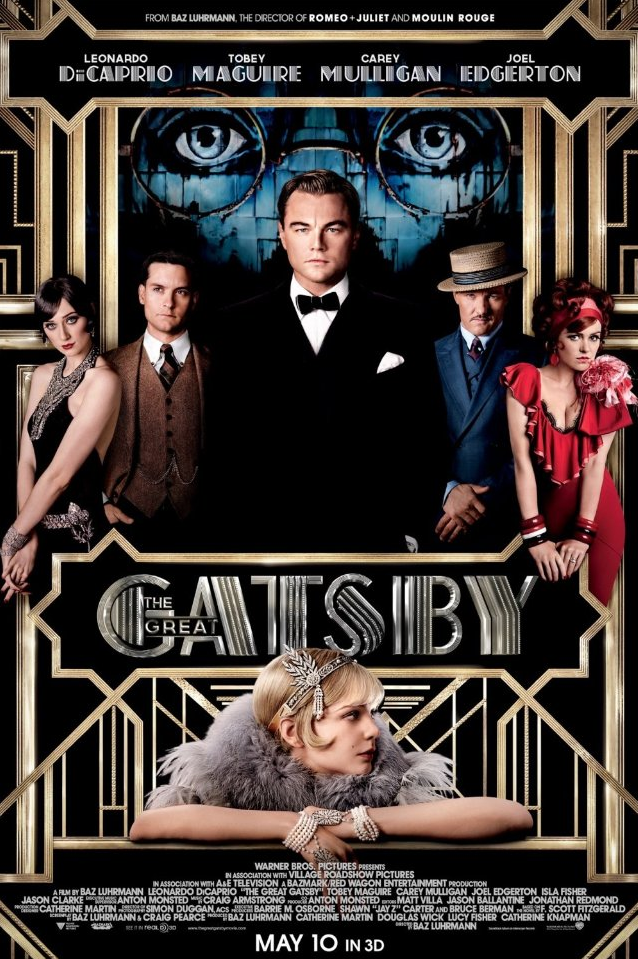 Now, I’ve never read The Great Gatsby. I know that it’s supposedly one of the greatest novels ever written, but I still never really got around to reading it. But according to various critics online, the Warner Brothers adaptation faithfully follows its inspiration, and so this assumption is what I’ll base my review upon.
Now, I’ve never read The Great Gatsby. I know that it’s supposedly one of the greatest novels ever written, but I still never really got around to reading it. But according to various critics online, the Warner Brothers adaptation faithfully follows its inspiration, and so this assumption is what I’ll base my review upon.
Normally I’d think that this was a great thing. I often criticize movies for not being true to their inspiring writings, cutting and changing things left and right. In fact, I’ve often remarked that I would like to see a movie which almost exactly follows a book. Unfortunately, having seen The Great Gatsby, I think that I can safely say that a little change may be preferable.
The core problem is that books and movies are very different mediums. Books are renowned for their language in narration: the thoughts of a character and events in a world and how they are described in simple, delicate sentences. Movies, on the other hand, are all visual stimuli and character interactions. The key issue here is translating between the two mediums. Sure, you can take dialog directly from the text, but you have to dream up new ways to show descriptions, thoughts, and feelings.
Unless you take the easy way out and use narration, like Gatsby did. They wanted to preserve the language of the book, and that’s fine, but it really turns the story into more of an illustrated novel than a real film.
In addition, in their attempts to tell the entire story they speed through the exposition, turning the first half hour into a rapid series of quick shots, fast lines, and irritating voiceovers. It takes out a lot of emotion, and sets a poor tone for the film’s start.
The rest of the plot is Leo, Leo, Leo. I’ve heard a lot of people talking about Leonardo DiCaprio, and how he’s the best thing about this film. I can agree with that notion — he plays an eccentric Gatsby as well as a vulnerable one — but perhaps one of the reasons people dwell on him is that the movie milks him for all that he has. The movie is hardly anything until Gatsby is introduced, but then Gatsby ends up with more screen time and focus than anyone else in the entire film.
The setting of the film was rather well put together, with the exception of a soundtrack completely and utterly out of place. As I understand, there were no pop singers, auto-tunes, or car stereos back in the early 1920s, and I don’t think that adding them for a thematic boost really helps modernize the story so much as wound it’s believability.
It almost feels like anything without Gatsby is shrunken to accommodate as they try to make Leo carry the whole story. But while a strong titular character is important, supporting actors (especially in this story) need as much attention, and this was something that they simply didn’t receive.
Age Recommendation: The movie itself is moderately clean — there are some sex scenes and disturbing events, but all in all it’s probably fine for ages 10 and up. (But do them a favor and give them the book first.)
Final Verdict: This movie is trying to both tell the entire story of The Great Gatsby while also keeping Leonardo DiCaprio in front. However, this is executed poorly, with rushed sequences and overly modernized atmosphere. The story is broken, and the telling unsuccessful. Perhaps it’s good that Leo got his time — he’s the best thing about this flick. 3/10



{ 4 comments… add one }